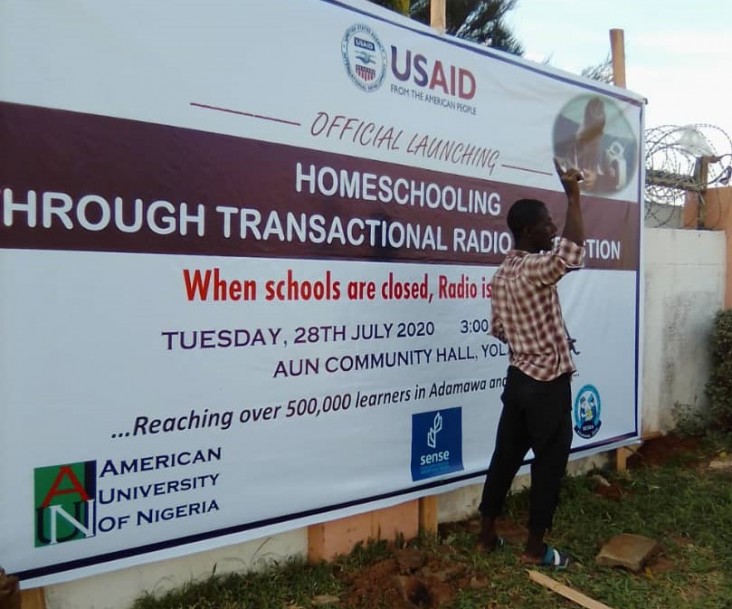Speeches Shim

The U.S. Agency for International Development (USAID), in partnership with the American University of Nigeria (AUN), will reach more than 500,000 pupils in Gombe and Adamawa states through a new home-schooling program called Transactional Radio Instruction (TRI) to be broadcast across the two states.
The 13 episode distance learning program will run on Tuesdays and Thursdays for 10 weeks in the Hausa language to help pupils fill the gap created by schools’ closure because of the COVID-19 pandemic. A similar program conducted in the two conflict-affected states at the height of the Boko Haram insurgency in 2013 had successful results, even reaching children displaced into camps from their communities.
“As schools in the Northeast remain closed, there is a critical need to find alternatives to support children continuing to learn where they are,” USAID Mission Director Stephen M. Haykin said of the initiative. “Bearing in mind the availability of power, internet connection, and available technology devices, radio is clearly the most effective way to bring teaching and learning into the home.”
The program is managed by the USAID Strengthening Education in Northeast Nigeria (SENSE) activity implemented by the American University in Nigeria (AUN) in coordination with the World Bank’s Better Education Service Delivery for All (BESDA) activity and the State Universal Basic Education Boards.
Schools in the two states have been closed since March, and pupils in primary grades 1-3 have been without instruction for the last 15 weeks.
Aware of the learning regression risks associated with a protracted period of lost instruction, AUN developed the radio program to provide adapted radio lessons covering the initial stages of the Mu Karanta! and RANA curriculums in Gombe and Adamawa respectively, in partnership with BESDA.
The materials were developed following global best practices for early grade reading instruction. The lessons are designed as a series of radio dramas accompanied by easy-to-memorize songs synchronized to accompanying workbook activities to help engage children in learning in an exciting and entertaining fashion. Its core components combine sound pedagogy, stories, and songs with the workbook activities.
Through the partnership with BESDA, the SENSE activity will be able to scale up past its original goal of 120,000 learners for the year to reach more than 500,000 learners across the two states.
Each radio episode lesson begins with a 40-second COVID-19 awareness message that provides examples of precautionary and prevention measures such as hand washing, social distancing and wearing of face masks.

Comment
Make a general inquiry or suggest an improvement.